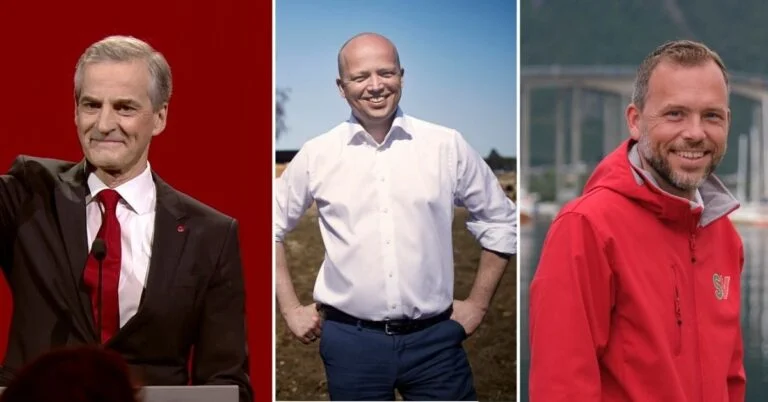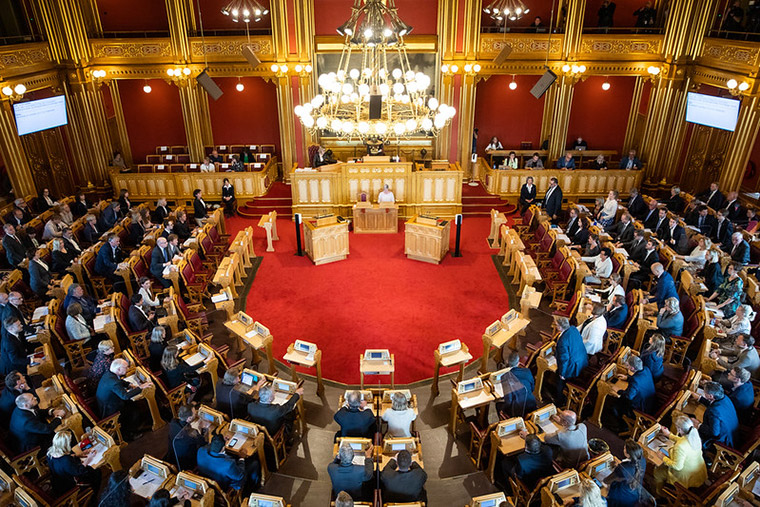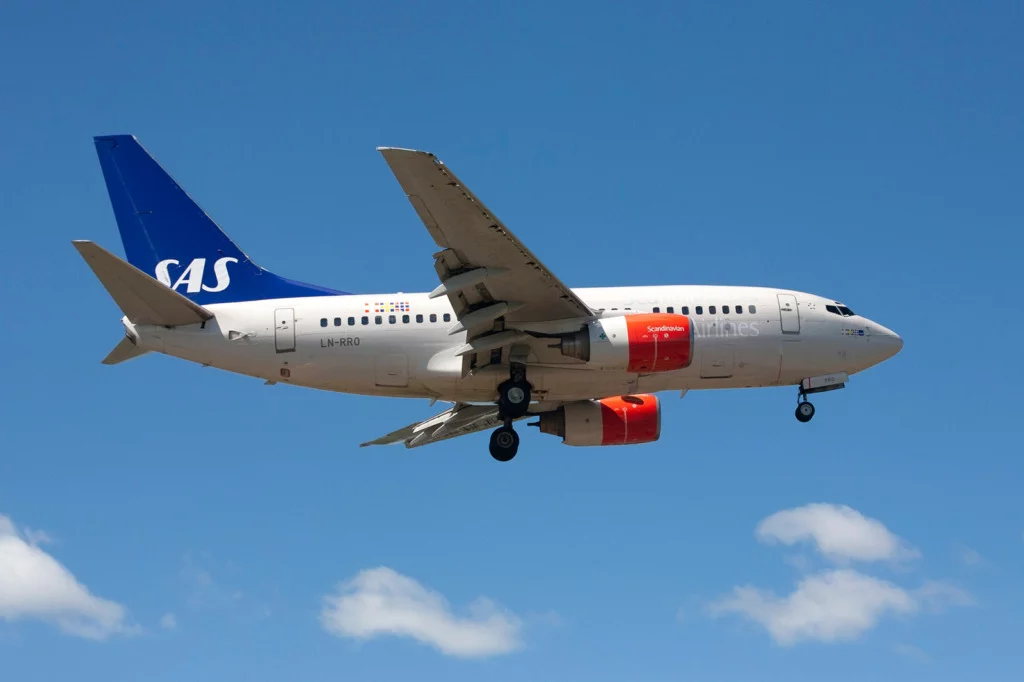Here's how Norway could change over the coming four years if the expected red-green coalition strikes a deal to lead the country.
Now that the dust is settling after the national election, Norway is facing a new direction. Erna Solberg will leave her post as prime minister after 8 years at the helm.

The 2021 election results show that the Labour Party (Ap), Centre party (SP) and Socialist Left (SV) won enough seats to together command a majority in parliament. They won 48, 28 and 13 seats respectively, giving them a combined total of 89, a majority of 5.
The three parties have governed together before, but the maths this time is different. The Labour party's previous dominance is diminished, meaning Sp and SV could make firmer demands in the coalition negotiations.
Ap leader Jonas Gahr Støre has a tough job in the coming weeks to satisfy Sp and SV, not to mention his own party.
The differences between Sp and SV in particular are very wide in some areas, so the coalition talks are by no means a sure thing. Disagreements over wealth tax, urban v rural priorities, climate taxes and Europe are likely.
Read more: 11 Fascinating Facts About Norway's 2021 Election
Let's take a look at what the next four years could look like, based on the election promises of the three parties.
Not as much change as you might expect
Støre campaigned on a platform of reducing inequality. So does a shift from a centre-right to a centre-left government mean a dramatically different approach to tax and public spending? Perhaps not.

DNB Markets' Kjersti Haugland told Reuters that people should not expect dramatic change.
“There will be some tax increases, for example, and there will be a different set of priorities, but the total size of the public budget will not be substantially different from if the current government were to remain in place,” she said.
Taxes
The most important deal to be struck will be on the government's approach to tax rates. This has a knock-on effect on how much money is available to invest in other areas, such as health and education.
Overall, SV–the farthest left of the three parties–wants to increase the overall tax and duty take by NOK 18 billion. In stark contrast, Sp want to keep the tax take more or less the same as today.
Ap will also aim for a similar tax take, with the exception of a big hike in wealth tax. They promised that for other taxes, a rise in one place would be equalled by a fall in another.
All three parties agree to raise taxes on the wealthiest, although there are differences in the details. Sp and Ap want to increase taxes on those who earn more than NOK 750,000 per year, but SV will start the increases at a lower threshold of NOK 600,000.

There are bigger disagreements in the approach to wealth tax and what Sp calls “anti-social taxes”. The same is true on climate-related taxes.
Climate and the environment
Ap, Sp and SV all agree to work together to achieve the goals of the Paris Agreement on climate change. However, the three policies on how to get there differ wildly.
SV campaigned on a strong climate policy including raising the CO2 tax to make petrol and diesel more expensive. Given its rural roots, Sp will surely oppose this approach during the negotiations. There are also internal disagreements over climate policy within Ap.
One thing seems certain, however. Norway's oil age is not coming to an end any time soon. Both Ap and Sp want to “develop, not stop” the oil industry, while SV wants to stop new exploration.
The most likely scenario seems to be a continuation of the oil and gas industry as it was under the Solberg government. This means continued drilling and some exploration, but significant investment in green technologies such as the Green Platform funding and decarbonisation of the Norwegian continental shelf.
Urban v rural
One of the more interesting battles in the negotiations will be the balance of power between urban and rural interests.

Sp is Norway's strongest voice against urbanisation and will likely push for, among other things, significant cuts in transport fees in rural areas especially Northern Norway.
They also want to see changes in taxes for those who own machinery and other heavy equipment. There's also a curious difference between Sp and SV on predators such as the wolf, bear and lynx. Sp wants fewer predators, while SV wants to take measures to ensure viable populations.
The county reorganisation forced through by the Solberg government could also be revoked, or at least merged counties given the opportunity to become independent again.
Education
One area likely to see big changes is education, as it's where the three parties have the most agreement.
If policies are put into practise, there will be a more practical approach in Norwegian schools with less goal-setting, reporting and testing. Teachers should have more control over their everyday activities. Free school meals could also make a return.
Norway's relationship with Europe
Another potential sticking point could be related to Norway's ongoing participation in the European Economic Area (EEA) by way of its membership of the European Free Trade Association (EFTA).

Sp is proudly Eurosceptic and wants to replace the existing agreements with a series of specific agreements with Europe. Of course, as Brexit has shown, this is easier said than achieved.
SV also wants to see Norway leave the EEA. But instead, it wants a broad trade and cooperation agreement with the EU that will ensure “full and predictable market access to Europe.”
SV is particularly concerned about the European Court of Justice's rulings on the deregulation of the labour market. However, Ap is a strong supporter of continued EEA membership, while “making the most of the room to manoeuvre.”
Any change to membership of the EEA agreement could have significant knock-on effects on immigration, among other things.


Hi 👋
It will be great to have more news about immigration policies from the new government, it will be laws same as Erna government or the center left will change it? Thank you
I think they will make it harder to immigrate.
Also what with the new tax policy, 750k is not a lot of money, 750k salary does not make a person wealthy, 1mnok would have been more realistic.
It’s quite scary when you look at all the new ministers, almost all of them have never had a job, they have been professional politicians there entire lives, they have no understanding of what life is like for the average person living in this country, especially the champange socialist Statsminister.